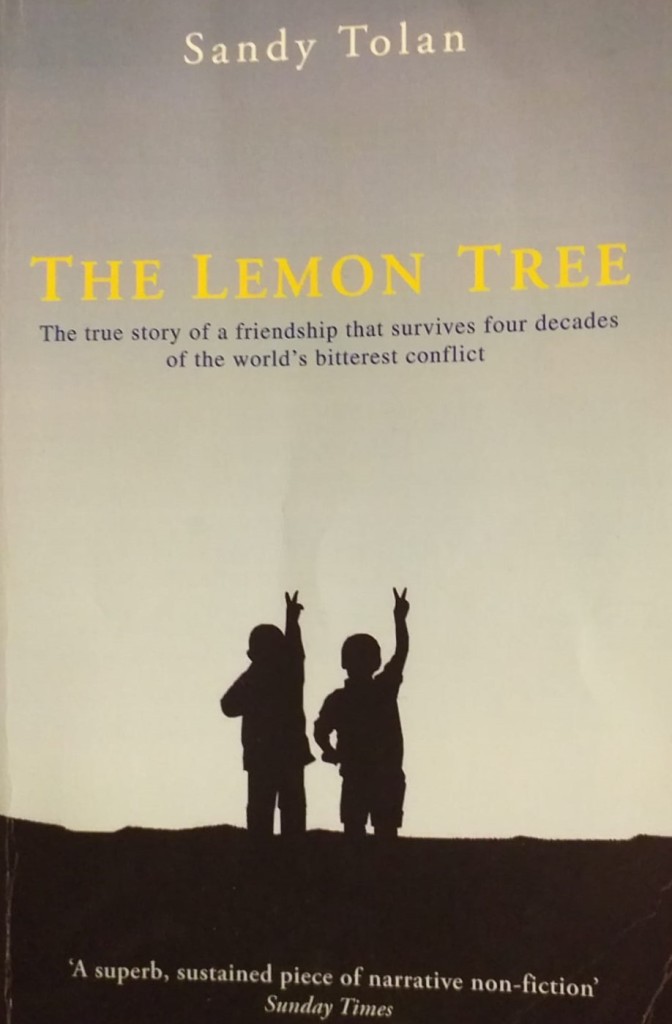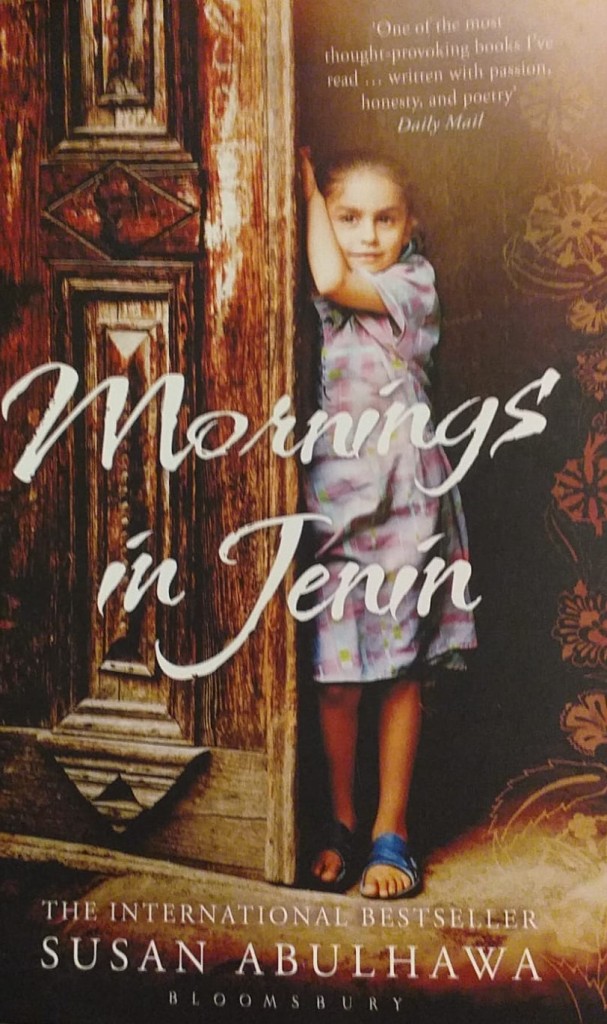When I moved to Jerusalem last year, I had only a very sketchy understanding of the occupation. I didn’t know my 1948 from my 1967 and I wanted to get up to speed quickly.
Aided both by my husband’s already creaking at the seams bookshelf and the wonderful Educational Bookshop, I started reading a mix of fiction and non-fiction books. Here are a few of the ones that have had the biggest impact on me.
The Lemon Tree by Sandy Tolan

This was the first book I read when I arrived, and it was a real eye-opener. The book focusses around a Palestinian family who are forced out of their house in Ramla in 1948. It is then occupied by a Jewish family who had recently arrived from Bulgaria. They know nothing of the house’s past history. Over time, the paths of the two families cross and the book follows them over decades.
I love that it is a true story with real people from both sides of the divide in it. The characters and the plot are as interesting as the best fiction, but it has been meticulously researched and grounded in fact. The author says, ‘I have not taken liberties with the history, no matter how minor’ and it comes with a hefty reference section to qualify this.
This book was balanced and gave me some perspective to try and see things from both sides – without making excuses.
I closed this book and immediately started researching the charity that exists today in the house that this book centres on. I was fascinated by the characters and they lingered with me for months afterwards.
Occupation Diaries by Raja Shehadeh

Raja is a bit of a legend in these parts. He is a distinguished Palestinian lawyer from Ramallah and founder of the Human Rights organisation Al-Haq. He writes with a very gentle and meandering style that brings real colour and humour to everyday occurrences. Sometimes he is talking about serious matters, at other times he is recounting a childhood memory or simply out with friends. The result brings warmth to his writing and fills the reader in, anecdote by anecdote, about life in Ramallah.
I loved the diary style entries and his brilliant turn of phrase, especially when he is disapproving about something. An example of such is, ‘I am now concerned about the up-and-coming class living in our bubble with a most worrying sense of what constitutes trendiness’. In this entry he is baffled by a new restaurant which, as well as other crimes against tradition, has the audacity to serve his tabbouleh salad with a pineapple sauce.
I am now a self-confessed Raja fan and have since read several of his other works. His recent book ‘Going Home: A Walk Through 50 Years of Occupation’, is also excellent. In it, he takes a long walk around Ramallah and talks about the history, his memories and his love of the land. It is testimony to his skill as a writer that one walk can be the focus for an entire book without it seeming drawn out or laboured.
I also love that Raja is connected to Scotland and he is a regular at the Edinburgh International Book Festival. You can listen to him on 17 August doing an online event called ‘What Future for the Middle East’.
Mornings in Jenin by Susan Abulhawa

I only finished this book recently and it is still haunting me. The characters are fictional, but the plot is based on real-life events that are too horrific for me to want to believe they are true. In particular, the events in the Palestinian Shatila Refugee Camp in Lebanon in 1982 are unthinkable. I loved the characters and it was hard to see them unravel as they met cruel and often gruesome fates.
It is a gripping read and was poetic and beautiful in its descriptions. My favourite character Dalia is described ‘like a wild gypsy, born of Bedouin poetry and colours instead of flesh and blood’. In the same scene the villagers despair at her, saying ‘Look at her eat that orange! What shame on her family. All the boys are staring at her’.
The harsh realities of events in 1948, 1967 and then in Lebanon in the 1980s form the backdrop, but the real story is about the closely woven family ties and community bonds.
Only last week, the author published a new book based in Palestine ‘Against the Loveless World’ and I can’t wait to read it. She is also speaking at the Edinburgh Book festival. It is a pre-recorded event available at the following link.
It is a happy coincidence that two of my chosen authors are speaking in my hometown of Edinburgh over the coming weeks. The book festival is an annual highlight in Edinburgh and a bonus of corona virus is that it can now be enjoyed much more widely than usual!
There are literally thousands of books written about Jerusalem, religion and occupation. I’d love to hear which books have left an impression on you. If you are looking for any of the books above you will find them in the Educational Bookshop on Salah Ad Din street (or you are welcome to borrow my copies!).
Super interesting! I’ll add these to my reading list!
LikeLiked by 1 person
Thanks Kyra, I would offer to send you mine but the post service isn’t great!
LikeLike
Thanks Kirsty! Can’t wait to read them!
LikeLiked by 1 person
You can borrow mine if you want to Agnes!
LikeLike
Thank you Kirsty. My partner has also recommended ‘Mornings in Jenin’ to me- and to everyone! Both of us will enjoy your other ‘finds’. The story of the Open House Charity today and their empowering mission of peace-building based on ‘The Lemon Tree’ sounds equally extraordinary.
LikeLiked by 1 person
Hi JulieAnn, I agree the Open House charity sounds like such an amazing outcome to come from the situation. Very happy to lend any of my books once you are back in Jeru!
LikeLike
Kirsty, I have been reading (pictured above) the earlier work by Rashid Khalidi, ‘Palestinian Identity’–though it’s academic, it’s actually a very interesting read if like me, you enjoy history. I also recommend (both of these purchased at Educational Bookshop) Lena Jayyusi’s Jerusalem Interrupted, a large book of essays and photos that is a bit older but nonetheless an indispensable social history compendium of various Jerusalem neighbourhoods. best, Nyla
LikeLiked by 1 person
Thanks for the recommendations Nyla, they sound interesting!
LikeLike